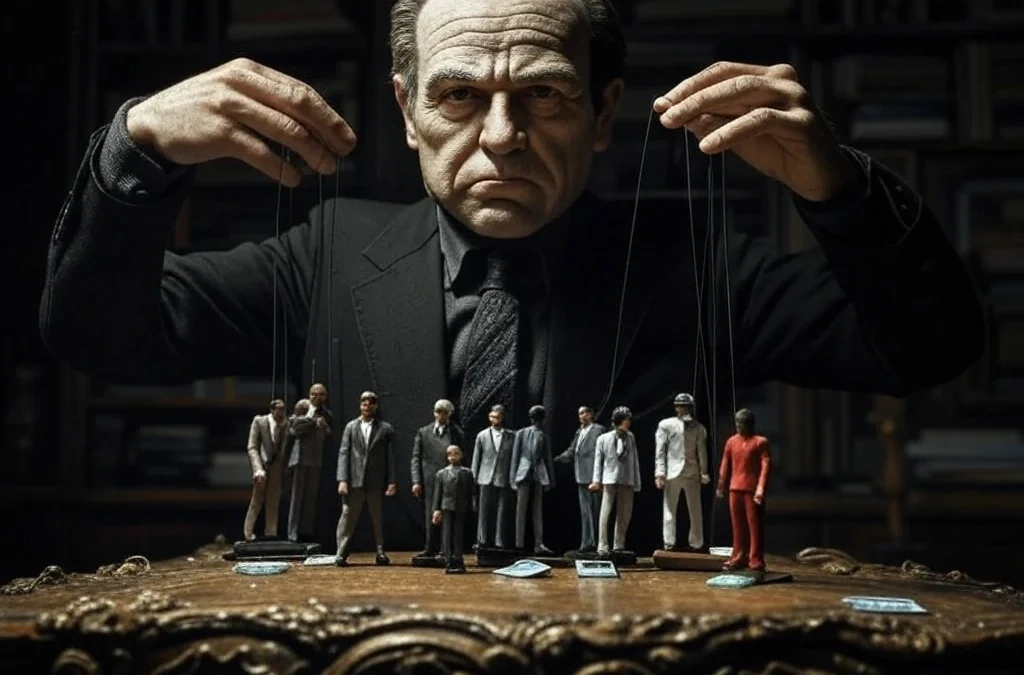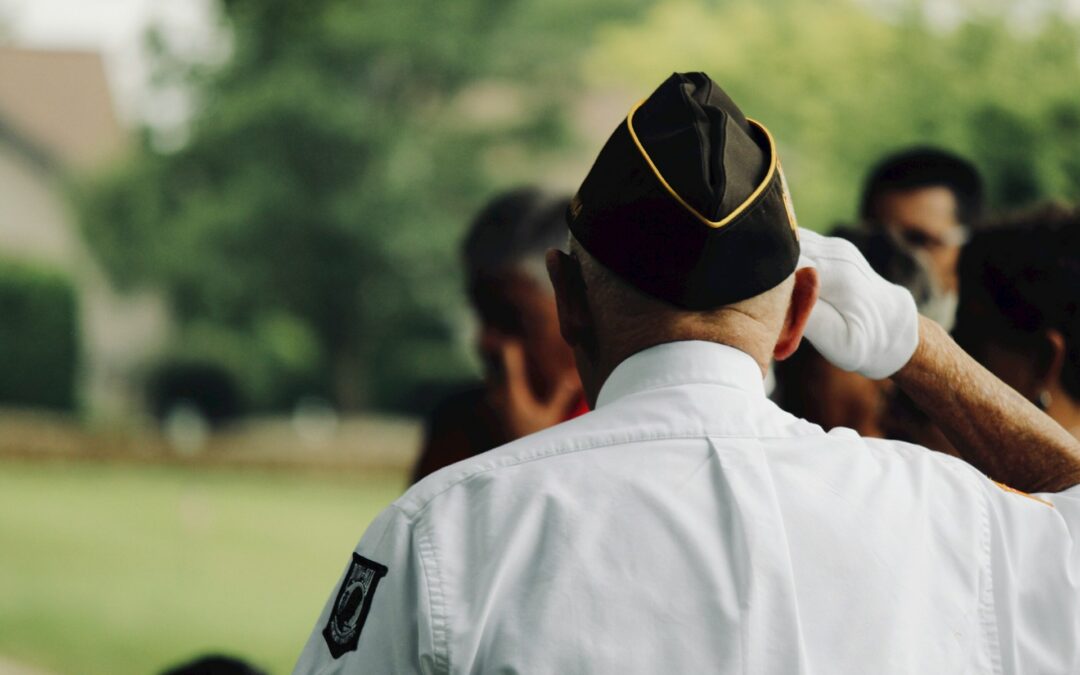In today’s fast-paced world, the principles of honor and integrity seem more relevant than ever. This article delves into 30 examples of honorable behavior, providing a comprehensive definition for each. These behaviors are the building blocks of a respectful and ethical society, reflecting values that foster trust, respect, and mutual understanding among individuals.
Understanding and practicing these behaviors can significantly impact your personal and professional relationships. From showing empathy and honesty to maintaining commitments and respecting others’ boundaries, each example serves as a guide to living a life marked by dignity and respect. Join us as we explore these timeless principles, highlighting how they apply in everyday situations and contribute to a more honorable world.
What is Honor?
Honor is a multifaceted concept rooted in integrity, respect, and dignity. It’s about more than personal behavior; it’s a commitment to ethical principles that foster trust and respect across society. This commitment reflects in actions that are honest, respectful, and aligned with societal values and personal ideals, establishing honor as a fundamental aspect of moral conduct.
At its core, honor entails a profound sense of responsibility towards oneself and others, driving actions marked by fairness, justice, and compassion. Beyond simply following rules, honor involves the courage to act rightly, even when faced with personal sacrifices. It’s the practice of upholding one’s highest values, earning respect through consistent, value-driven actions. Such practices are essential for developing trustworthiness and leadership, crucial for ethical societies.
Moreover, honor requires accountability and humility, urging individuals to acknowledge their mistakes and pursue personal growth. This dynamic journey enriches one’s character and has a positive ripple effect on the surrounding community.
Honor also plays a critical role in building cohesive communities, promoting mutual respect, understanding, and peaceful coexistence. It’s the fabric that weaves together strong, supportive, and inclusive societies.
In essence, honor is a timeless virtue that surpasses cultural, historical, and societal divides. It is the cornerstone of ethical living, guiding us towards beneficial actions for ourselves and others. In today’s complex world, embracing honor paves the way for a more equitable, respectful, and dignified society.
The Best Examples of Honor
1. Keeping Promises
Honor involves fulfilling commitments, regardless of the circumstances. When someone makes a promise, they create an expectation. Keeping that promise demonstrates reliability and builds trust. It shows respect for the other party and signifies that one values their word as a reflection of their character.
2. Telling the Truth, Even When It’s Difficult
Honesty is a cornerstone of honor. This means being truthful even in situations where the truth may lead to personal disadvantage or challenge. Telling the truth demonstrates integrity, showing that one prioritizes ethical principles over personal gain.
3. Standing Up for What is Right
Defending principles of justice and fairness, even in the face of opposition, is a hallmark of honor. This could involve speaking out against injustice, protecting someone from bullying, or challenging unethical practices. It showcases moral courage and a commitment to ethical values.
4. Admitting Mistakes and Making Amends
The ability to acknowledge when one is wrong and take steps to rectify the situation is a critical aspect of honor. It requires humility and integrity, demonstrating a commitment to fairness and responsibility.
5. Respecting Others
Honor involves treating everyone with respect, regardless of their status, race, gender, or beliefs. This respect is shown through listening, empathizing, and valuing others’ perspectives and rights. It underscores the belief in the inherent dignity of all individuals.
6. Fair Play
In competition or any situation where there is something to be gained, honoring the rules and being fair to all participants is essential. This means avoiding cheating or deceit and recognizing the value of a fair process over personal victory.
7. Safeguarding the Vulnerable
Protecting those who cannot defend themselves, whether it’s people, animals, or the environment, reflects a deep sense of honor. It shows a commitment to justice and compassion, prioritizing the well-being of others.
8. Self-Improvement
Continuously striving to be a better person, learning from experiences, and working towards personal and moral growth are actions of honor. It demonstrates a recognition that personal development contributes to the greater good.
9. Confidentiality and Trustworthiness
Keeping confidences entrusted by others shows honor. It respects the trust placed in one and upholds the value of privacy and security, crucial in building and maintaining strong, trusting relationships.
10. Generosity and Selflessness
Offering help and support to others without expecting anything in return is a noble act of honor. It reflects a spirit of generosity, showing that one values the well-being of others as highly as their own. This can manifest in volunteer work, mentorship, or simple acts of kindness.
11. Respecting Cultural and Religious Differences
Honor involves acknowledging and valuing the diverse cultural and religious backgrounds of others. This means actively listening, seeking to understand, and showing respect for traditions and beliefs different from one’s own. It promotes a culture of inclusivity and mutual respect.
12. Defending the Truth
Beyond just telling the truth, defending it against misinformation or deceit is a powerful act of honor. This could involve debunking falsehoods, supporting factual information, and encouraging honest discourse, especially in situations where truth is contested.
13. Apologizing Sincerely
When one has wronged another, offering a genuine apology demonstrates honor. It shows an understanding of the impact of one’s actions and a sincere effort to make amends, fostering forgiveness and reconciliation.
14. Maintaining Professional Ethics
In the workplace, honor is reflected in adhering to ethical business practices, treating colleagues with fairness, and prioritizing the common good over personal gain. This fosters a culture of integrity and trust.
15. Mentoring and Empowering Others
Taking the time to mentor, guide, and empower others, especially those who are younger or less experienced, is an honorable action. It shows a dedication to the growth and development of others, passing on knowledge and skills to help them succeed. This generosity of spirit contributes to a stronger, more capable community.
16. Courage in the Face of Adversity
Displaying resilience and courage when faced with personal, professional, or societal challenges is a testament to one’s honor. It shows a steadfast commitment to one’s principles, even under pressure.
17. Supporting Equality and Justice
Actively promoting and working towards equality, equity, and justice in all facets of life reflects honor. This means challenging discriminatory practices and advocating for the rights and dignity of all individuals.
18. Valuing Family and Community
Honor is also seen in the commitment to family and community responsibilities. This includes caring for relatives, contributing to community well-being, and fostering a sense of belonging and support.
19. Practicing Patience and Understanding
Showing patience and striving to understand situations from multiple perspectives before reacting is an honorable approach to conflict and misunderstanding. It demonstrates wisdom and a commitment to fair resolutions.
20. Living Authentically
Being true to oneself, upholding one’s values, and living in a way that is consistent with one’s beliefs, regardless of external pressures or expectations, embody honor. It is about authenticity and the courage to live according to one’s principles.
Remarkable Real-life Examples of Honor
The Heroism of First Responders on 9/11: The first responders during the September 11 attacks in 2001 demonstrated extraordinary bravery and honor. Firefighters, police officers, and paramedics rushed into the World Trade Center buildings to save lives, fully aware of the dangers they faced. Their selfless actions and sacrifice are profound examples of honor, showcasing the highest degrees of courage, commitment to duty, and compassion for others. Their legacy reminds us of the valor and selflessness that define true heroes in our society.
Witold Pilecki’s Voluntary Imprisonment in Auschwitz: Witold Pilecki, a Polish soldier, voluntarily allowed himself to be captured and sent to Auschwitz to gather intelligence and organize a resistance from within the camp. His reports were among the first to reveal the horrors of the Holocaust to the Allied forces. Pilecki’s self-sacrifice, bravery, and dedication to saving others at great personal risk exemplify honor in its highest form. Despite facing unimaginable atrocities, he remained committed to his mission, showing immense courage and a profound sense of duty to humanity.
Harriet Tubman and the Underground Railroad: Harriet Tubman, born into slavery in the United States, not only escaped to freedom but also risked her life repeatedly to lead hundreds of slaves to freedom via the Underground Railroad. Her selfless acts of bravery, underpinned by a deep sense of justice and compassion, highlight the essence of honor. Tubman’s unwavering commitment to helping others escape oppression, at great personal risk, demonstrates the profound impact of integrity, courage, and selflessness.
The Professional Integrity of Dr. Mona Hanna-Attisha in the Flint Water Crisis: Dr. Mona Hanna-Attisha played a crucial role in bringing attention to the Flint water crisis. Despite facing opposition, she stood firm in her findings that the water in Flint, Michigan, was causing lead poisoning in children. Her persistence in advocating for the truth, despite institutional pushback, exemplifies honor in professional ethics. Dr. Hanna-Attisha’s commitment to public health and her courage to speak out against wrongdoing highlight the critical role of integrity and responsibility in protecting communities.
The Selflessness of Oskar Schindler: A German industrialist and member of the Nazi Party, Oskar Schindler saved over 1,200 Jews during the Holocaust by employing them in his factories and bribing Nazi officials to keep them from death camps. Schindler’s transformation from a war profiteer to a protector of lives is a remarkable story of redemption and honor. His actions demonstrate the profound impact of empathy, bravery, and a commitment to saving lives, even in the darkest times.
Importance of Honor
In an era where the pace of change is relentless and the noise of the world ever-increasing, the concept of honor remains a steadfast beacon guiding the moral compass of society. Honor, a principle as ancient as civilization itself, continues to hold profound relevance in shaping the character of individuals and, by extension, the fabric of communities. It is not merely a relic of the past but a living, breathing ethos that underscores the importance of integrity, respect, and ethical conduct in the modern world.
At its core, honor is about living up to one’s own values and the expectations of those around us. It involves a commitment to doing what is right, not for the sake of reward or recognition, but because it is fundamentally the correct course of action. This dedication to principle over convenience or personal gain fosters a sense of trust and reliability that is indispensable in both personal relationships and broader societal interactions. In a world where trust can often seem in short supply, the role of honor in building and maintaining this trust cannot be overstated.
Moreover, honor acts as a bulwark against the erosion of ethical standards. In the face of challenges and temptations, it provides a framework for decision-making that prioritizes ethical considerations over easier, perhaps more expedient, paths. This is not to say that living honorably is without its difficulties. On the contrary, it often requires the courage to stand alone, to be the dissenting voice in a room of consensus when that consensus veers from the path of integrity. Yet, it is precisely in these moments that the true value of honor is revealed, demonstrating that principles are not just words to be spoken but standards to be lived by.
The pursuit of honor also encourages a sense of responsibility and accountability. It teaches that one’s actions have consequences and that taking ownership of these actions is a mark of true character. This sense of responsibility extends beyond the individual, fostering a culture where people look out for one another, act with compassion, and contribute positively to their communities. In this way, honor lays the groundwork for a society that values and practices mutual respect and understanding.
In the end, the importance of honor lies not just in the lofty ideals it represents but in the tangible impact it has on the world. Honor influences how we interact with each other, how we face challenges, and how we contribute to society. It shapes leaders, builds communities, and, most importantly, it acts as a guiding star for individuals navigating the complexities of modern life. As we move forward, the timeless principles of honor offer not only a link to our past but a roadmap for the future, reminding us that how we choose to live our lives—in ways both big and small—matters profoundly.
In embracing honor, we embrace the best of what it means to be human, committing ourselves to a life of integrity, respect, and ethical action. This commitment, while deeply personal, has the power to inspire change and influence the world in immeasurable ways. The importance of honor, then, is not just in the lofty ideals it upholds but in the everyday choices it informs, shaping not only the individuals who live by its tenets but the very society in which they dwell.
Diverse Types of Honor
Honor can be understood through various types, each reflecting different aspects of human values and societal norms. Here’s a breakdown of the main types of honor in a clear and easy-to-understand manner:
- Personal Honor: This type of honor is about individual integrity and ethical standards. It involves being true to one’s own values and principles, even when no one else is watching. Personal honor is about honesty, responsibility, and the personal commitment to do what is right, based on one’s moral compass.
- Familial Honor: Familial honor relates to the respect and reputation of a family in the eyes of its members and society. Actions by individual family members can affect the family’s honor positively or negatively. This type of honor emphasizes loyalty, tradition, and the collective dignity of the family unit.
- Social Honor: Social honor is about the esteem and respect one earns from others within a community or society. It’s influenced by one’s actions, achievements, and how well they adhere to the social norms and values of their group. Social honor involves recognition, prestige, and the status conferred by others.
- Professional Honor: This reflects the standards and ethics within one’s profession or occupation. It involves commitment to excellence, accountability, and ethical behavior in the workplace. Professional honor is about upholding the dignity of one’s profession and contributing positively to its reputation.
- National Honor: National honor pertains to the pride and respect associated with one’s country. It involves patriotic acts, defending the nation’s values, and contributing to its well-being. National honor can manifest through service, sacrifice, and a commitment to the country’s ideals and interests.
- Martial Honor: Often associated with military contexts, martial honor is about courage, bravery, and the ethics of war. It involves adhering to a code of conduct in battle, showing respect to foes, and upholding the honor of one’s military and country.
Each type of honor has its own nuances, but they all share common themes of integrity, respect, and ethical conduct. Understanding these different types can help individuals navigate their actions and decisions in various aspects of life, aiming to live honorably within their personal beliefs, family traditions, social circles, professions, nation, and even in conflict situations.
How to Honor Someone with Words?
To honor someone with words means to express respect, admiration, or gratitude through verbal expressions that genuinely reflect the value and significance of the person being honored. This can be achieved in several thoughtful ways:
Be Specific
Tailor your words to acknowledge the unique qualities, achievements, or impact of the individual. Mentioning specific examples makes your tribute more meaningful and personal.
Express Sincerity
Your words should come from the heart, conveying genuine respect and appreciation. Authenticity is key to making your message resonate.
Use Respectful Language
Choose words that reflect the dignity and esteem you feel for the person. Avoid generic phrases, opting for language that speaks to the individual’s character and contributions.
Public Acknowledgment
Honoring someone in the presence of others, whether in a speech, a toast, or a social media post, amplifies the recognition and makes it more special.
Written Tributes
A letter, a card, or an article can be a lasting testament to your respect and admiration. Written words allow for reflection and depth, providing a tangible reminder of your esteem.
Personal Stories
Sharing personal anecdotes or memories can highlight the meaningful impact the person has had on your life or the lives of others, making your words more impactful.
By focusing on these elements, you can craft a message that not only honors someone with words but also leaves a lasting impression, reinforcing the esteem in which you hold them.
The Most Popular on BitGlint

40 Social Dilemma Examples in the World & Real Life
Social dilemmas are everywhere. They shape the choices we make at work, in our communities, and even on a global...

30 Favor Examples & Definition
Doing a favor means helping someone without expecting anything in return. It’s an act of kindness that can strengthen...

30 Naivety Examples & Definition
Naivety is something most people experience at some point in their lives. It often starts in childhood, but for some,...

20 Chronology Examples & Meaning
Chronology is something we use more than we realize. It shows up in conversations, in how we remember the past, and in...

30 Wishful Thinking Examples & Meaning
Wishful thinking is something we all do at some point. You hope things will turn out fine—even if there’s no real...

20 Examples of Gravity & What Gravity Really Is
Gravity is one of the most important forces in the universe, but many people don’t fully understand what it really is...

20 Examples of Secondary Consumers in the Food Chain
Secondary consumers are animals that eat other animals—usually herbivores that feed on plants. They’re an important...
Get Inspired with BitGlint
The Latest
30 Flow State Examples & Definition
Most people have felt it at some point — that rare moment when everything just clicks. You're working, moving, or thinking, and suddenly it's like the rest of the world fades out. You're focused, clear, and everything you're doing feels smooth and natural. That’s...

30 Cynicism Examples in Everyday Life & Definition
Cynicism is something most people have seen, heard, or even felt - but few stop to really think about what it means. It shows up in jokes, in conversations, and in quiet thoughts we don’t always say out loud. Some people wear it like armor. Others see it as honesty....
50 Examples of Square Things
Square things are part of everyday life, even if we don’t always think about them. From objects we use at home to tools, packaging, and design elements we see out in the world, the square shape is everywhere. It’s simple, balanced, and practical — which is exactly why...
20 Hinduism Examples: Symbols, Gods & Core Beliefs
Hinduism is practiced by over a billion of people every day - but for those unfamiliar with it, it can seem complex or even confusing. With its many gods, rituals, and traditions, it raises a lot of questions. What do Hindus actually believe? What are the main...

